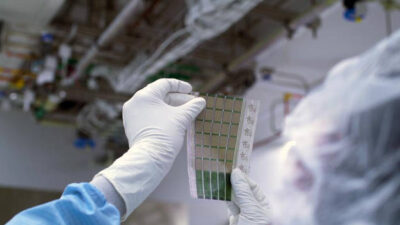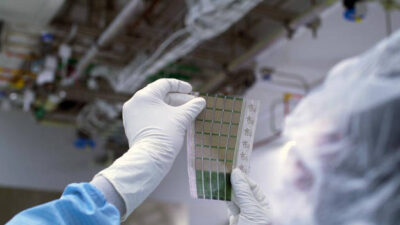A multidisciplinary team of researchers from Texas A&M University has made a breakthrough that could lead to battery production moving away from cobalt with lithium-ion (Li-ion) batteries.

Current lithium-ion (Li-ion) batteries utilize significant amounts of cobalt, which in several well-documented international cases is mined using child labor in dangerous working environments. Additionally, only a very small percentage of Li-ion batteries are recycled, increasing the demand for cobalt and other strategic elements.
A multidisciplinary team of researchers from Texas A&M University has made a breakthrough that could lead to battery production moving away from cobalt. In an article published in the May issue of Nature, Dr. Jodie Lutkenhaus, Axalta Coating Systems Chair and professor in the Artie McFerrin Department of Chemical Engineering, and Dr. Karen Wooley, distinguished professor in the Department of Chemistry and holder of the W.T. Doherty-Welch Chair in Chemistry in the College of Science, outline their research into a new battery technology platform that is completely metal free. This new battery technology platform utilizes a polypeptide organic radical construction.
“By moving away from lithium and working with these polypeptides, which are components of proteins, it really takes us into this realm of not only avoiding the need for mining precious metals, but opening opportunities to power wearable or implantable electronic devices and also to easily recycle the new batteries,” said Wooley. “They [polypeptide batteries] are degradable, they are recyclable, they are non-toxic and they are safer across the board.”
The all-polypeptide organic radical battery composed of redox-active amino-acid macromolecules also solves the problem of recyclability. The components of the new battery platform can be degraded on demand in acidic conditions to generate amino acids, other building blocks and degradation products – one of the major breakthroughs in this research, according to Lutkenhaus.
“The big problem with lithium-ion batteries right now is that they’re not recycled to the degree that we are going to need for the future electrified transportation economy,” Lutkenhaus added. “The rate of recycling lithium-ion batteries right now is in the single digits. There is valuable material in the lithium-ion battery, but it’s very difficult and energy intensive to recover.”
The development of a metal-free, all-polypeptide organic radical battery composed of redox-active amino-acid macromolecules that degrade on demand marks significant progress toward sustainable, recyclable batteries that minimize dependence on strategic metals. As a next step, Wooley and Lutkenhaus have begun working in collaboration with Dr. Daniel Tabor, assistant professor in the Department of Chemistry, through a 2020 Texas A&M Triads for Transformation (T3) grant that aims to utilize machine learning to optimize the materials and structure of the battery platform.
– Edited by Chris Vavra, web content manager, Control Engineering, CFE Media and Technology, [email protected].



